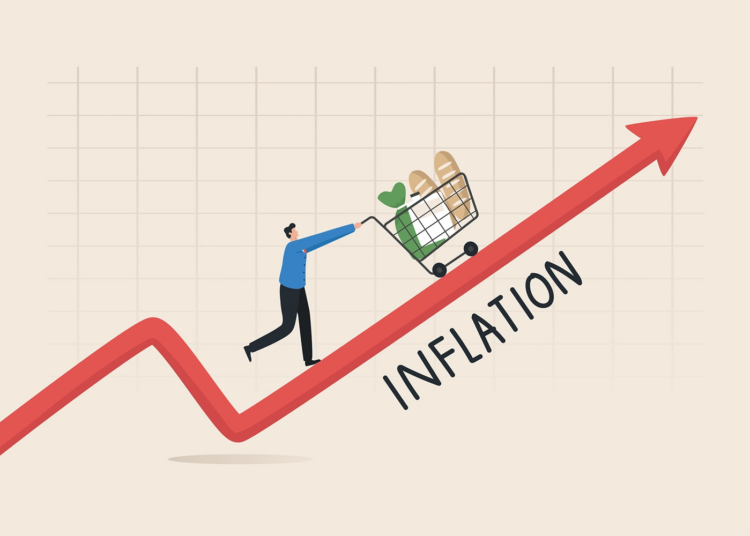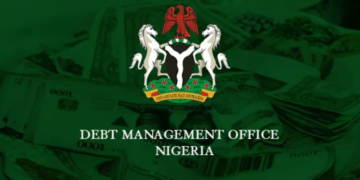The pervasive thinking, across the Nigerian socio-economic strata, is that the economy, presently, is in turmoil. Predictably, it is also perceived to be worsening the living conditions of the average citizen as a result of high inflation rate that is depleting the incomes of the citizens amid high prices of basic items.
Recently, the National Bureau of Statistics (NBS), released its inflation figures and, again, it is disheartening as Nigeria grapples with a consistent surge. According to the Bureau, inflation figures hit 24.80 per cent in July 2023 from 22.79 per cent in June, which is an increase of 1.29 percentage points.
The July 2023 inflation figure is the highest since September of 2005. Sadly, in our opinion, the major contributor to this has been food inflation with rising prices of commodities, including bread, cereals, potatoes, fish, and oil. According to the report, the food inflation rate rose to 26.98 per cent in July from 25.25 per cent in June.
The previous government of President Muhammadu Buhari, for eight years, reportedly, did very little, if at all, to curb incidences of financial impropriety and fiscal indiscipline. For instance, the administration met inflation at a single digit of nine per cent in 2015 and left at over 22 per cent.
According to data from the International Monetary Fund (IMF), Nigeria is expected to have annual overall inflation of 20.1 per cent this year and estimated economic growth of 3.2 per cent. However, the sudden surge in inflation rate has disrupted what appears to be some stability as the situation was reportedly exacerbated by the recent removal of fuel subsidy.
The impact of the decision to remove fuel subsidy was sharp and harsh on Nigerians as it increased the price of Premium Motor Spirit (PMS) with prices of other commodities skyrocketing even as the government is struggling to introduce measures to reduce the impact.
Another challenge to the economy is the unification of the exchange rate which has practically devalued the naira such that it hit N930 to a dollar last week before it was eventually mitigated by an intervention from the Nigerian National Petroleum Corporation Plc (NNPCL), which sought a loan of $3 billion dollars that shored up the naira, albeit, temporarily. However, experts are concerned about the sustainability of using borrowed funds to bolster a dwindling currency.
As a newspaper, we are compelled to note that the haste to float the naira to make it compete within the framework of market forces has, indeed, proved to be detrimental to the local currency because it lacked the basic security needed to thrive in such murky waters since the foreign reserve of the country, said to be one of its major anchors, had depleted so much. A recent Financial Report of the Central Bank of Nigeria (CBN) indicated that 40 per cent of the foreign reserve estimated at between $34 billion to $38 billion is borrowed funds.
Therefore, for a country like Nigeria that is import-dependent, we believe that floating the naira without adequate understanding of the economic parameters was ill-advised as it has given rise to high cost of imported items and subsequently higher inflation.
Similarly, it is trite to argue that one of the fundamental goals of a modern economic system is to keep prices of goods and services stable, otherwise the system itself will suffer severely with unprecedented impacts on the citizens. The attainment of this goal of ensuring that prices do not rise continuously, is very crucial because it is imperative to the attainment of the goal of economic prosperity.
In our opinion, Nigeria needs a strategic vision and technical competence to revamp the economy by investing massively in agriculture through mechanised methods. Local production must be revived in all sectors such as textile and manufacturing to reduce the over dependence on imported goods and services. The slogan from ‘Consumption to Production’ has to be given adequate financial backing to save Nigeria from imminent economic collapse.
A major part of the ugly development is the poor infrastructure that has hampered the transportation and even preservation of agricultural products and the worsening insecurity in the country in recent times. We are of the view that investment in food processing has to be given utmost priority as experts have advised that the country needs to connect farm-producing zones by rail so that the cost of bringing this food to cities and villages will be reduced.
The Nigerian security forces must be motivated and mobilised to tackle insecurity that has killed and displaced farmers in the country. According to the United Nations over 2.5 million Nigerians have been displaced as a result of the Boko Haram crisis since 2009. The level of food shortage this crisis had caused is perhaps unquantifiable.
We are persuaded to point out that high food prices in a dwindling economy with an annual population growth rate of about three per cent and a GDP growth rate that is hovering around a little over two per cent is a recipe for disaster and must be tamed before it is too late.





